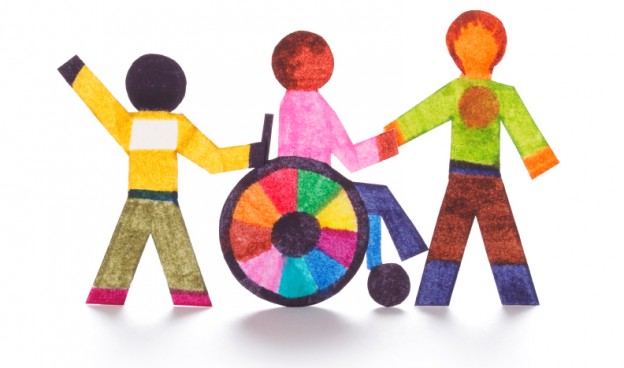
How to Succeed at Inclusion
“Progress is a nice word. But change is its motivator. And change has its enemies.” -Robert F. Kennedy, In The Pursuit of JusticeMy family and our supporting relationships have spent over twenty years building an inclusive community. We have had to overcome obstacles, misinformation, and resistance from the always present enemies of change. We discovered there was purpose in our pain, as each stage of progress brought us closer to our dream. Today we are living this dream and hope we can inspire you to do the same.
Successful inclusion begins and ends with our capacity for valuing others. We cannot include those we do not value. Fortunately, we can learn to value others, even those we see as different or less. Those of us who want to experience this type of inclusion must teach, educate, and inspire. This inclusion education takes place at home, in the community, and in the classroom.
1. Successful Inclusion Starts at Home
"You must be the change you wish to see in the world." -Mahatma Ghandi
If we struggle to accept our own children, we will have little hope of inspiring others to accept them. Our acceptance usually boils down to a choice between discouragement and destiny. Either we hold on to disappointment and live in perpetual discouragement, or find purpose in the pain. When we find purpose in the pain, we are making our children part of our lives rather than treating them as a disruption. We are practicing inclusion!
2. Successful Inclusion Takes Initiative
“The easiest thing is to react. The second easiest is to respond. But the hardest thing is to initiate.” -Seth Godin, Tribes
When people discover I am a special needs parent they usually have one of three responses. Some feel empathy for our situation, others are thankful not to have it, while the third group tells me about a friend or relative with special needs children. Few invite us into their lives, because they have no idea how this could be done.
Responses like these have helped our family discover our purpose. We want to inspire inclusion. This means helping typical families know how to include, and special needs families want to be included. For this vision to become a reality we had to take initiative.
Our first successful initiatives were inclusive holiday parties. We invited typical kids from our school and neighborhood. We also invited special needs kids from a variety of programs. Everything from the food to the activities was customized for inclusion. These parties were a resounding success, and became our blueprint for creating future inclusive ventures.
3. Successful Inclusion Innovates
"Above all, be the heroine of your life, not the victim." -Nora Ephron
When we signed up for our first community sports program, we were given the choice of playing for one team. This was the team for kids with disabilities. We had a great time, but after one season we felt something was missing.
The missing element was our children's typical friends. Rather than cry injustice we decided to innovate. Together with several soccer friends of mine we launched E-Soccer. This was a program where special needs and typical kids learn soccer together. We took initiative to build the program and it worked. We started with fewer than 10 kids, and now there are hundreds of kids participating around the world.
4. Successful Inclusion Persuades
"I would rather try to persuade a man to go along, because once I have persuaded him, he will stick. If I scare him, he will stay just as long as he is scared, and then he is gone." -Dwight D. Eisenhower
Two groups of people are essential partners in our journey toward inclusion. These groups are teachers and therapists. Failure to persuade either group limits the possibility of successful inclusion.
Three things fail to inspire people in these groups to become our inclusion partners. The first is anger. The second is accusation. The third is expectation without appreciation or contribution. If we are going to persuade people to become our inclusion partners, then we must make them friends not enemies.
A great place to start is by replacing anger with understanding, which is done by asking questions rather than making accusations. These questions can help us get to know people better, and develop empathy for their lives. My wife is tremendous in this area. She turns the answers to these questions into birthday and teacher appreciation gifts.
Answers to my questions have helped me better understand their technology or research needs. This allows me to make a contribution through research to find solutions to their problems, or by securing the technology products they need.
Our success in developing inclusion partners has greatly enhanced our children's inclusive educational experience. The creativity and effort of our therapists and teachers consistently exceed our expectations. In fact, on more than one occasion our children have experienced breakthroughs we didn't expect, because those working with them were so determined.
The simple truth is anyone can make inclusion successful. All that is required is to start now, start small, and be persuasive. You will be amazed by what you and your family can accomplish.


